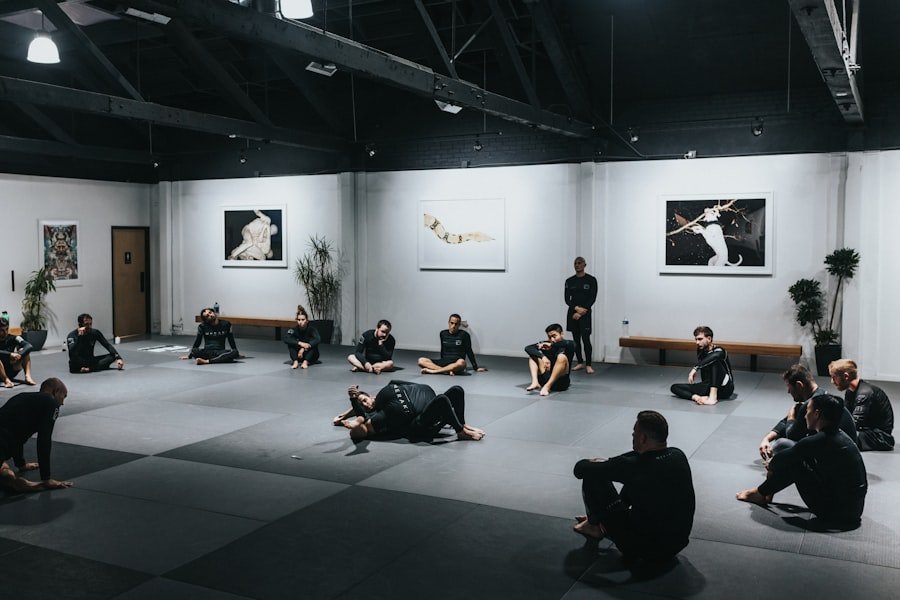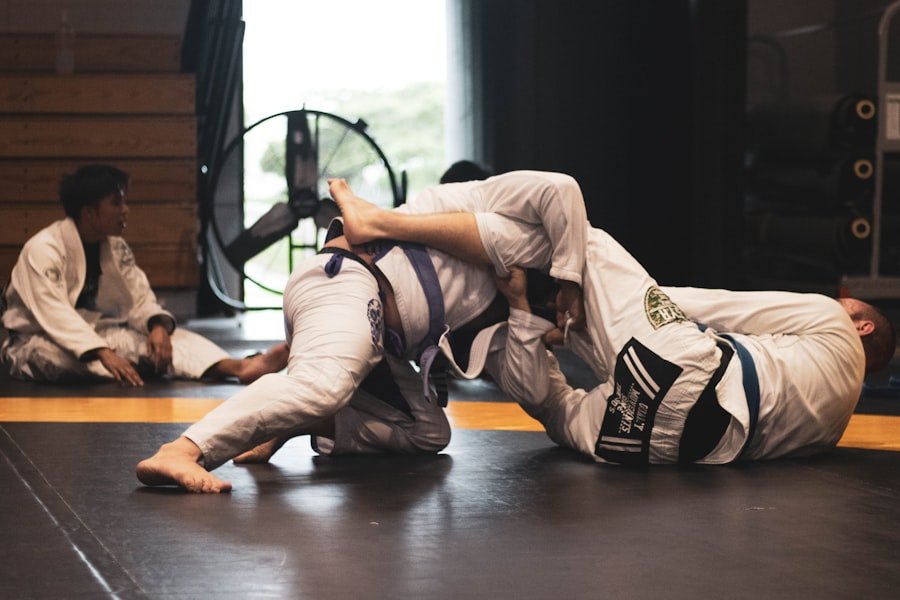Mandarin, as the official language of China, serves as a vital key to unlocking the rich tapestry of the nation’s cultural and historical sites. From the majestic Great Wall to the serene beauty of the Forbidden City, understanding Mandarin allows visitors to delve deeper into the stories and significance behind these iconic landmarks. Each site is steeped in history, and the nuances of the language can reveal layers of meaning that might otherwise remain hidden.
For instance, the intricate calligraphy found on ancient stone tablets or the poetic inscriptions adorning temple walls can be fully appreciated only by those who grasp the subtleties of Mandarin. Moreover, Mandarin is not merely a tool for communication; it is a vessel for cultural expression. The language embodies the philosophies, traditions, and values that have shaped Chinese society over millennia.
When exploring historical sites, speaking Mandarin enables visitors to engage with local guides and historians, who can provide insights that enrich the experience. This connection to the language fosters a deeper appreciation for the artistry and craftsmanship that characterise China’s architectural marvels, allowing one to witness history not just as an observer but as an active participant in its narrative. Spaces are filling up fast! Register for Chinese classes at the LC Chinese School in Oslo today.
Table of Contents
ToggleSummary
- Mandarin language skills are essential for navigating China’s cultural and historical sites
- Embracing the language and culture of the Wudang Mountains can enhance your travel experience
- Connecting with locals and building meaningful relationships is easier with Mandarin language skills
- Understanding traditional Chinese medicine and martial arts is possible through Mandarin language immersion
- Overcoming language barriers and gaining confidence in communication is key to immersing yourself in the language and lifestyle of China
Navigating Daily Life in China with Mandarin Skills
Navigating daily life in China can be a daunting task for those unfamiliar with the language. However, possessing Mandarin skills transforms this challenge into an enriching experience. From ordering food at a bustling street market to haggling for souvenirs in a local shop, speaking Mandarin opens doors to authentic interactions that enhance one’s understanding of Chinese culture.
The ability to communicate effectively allows individuals to immerse themselves in the local lifestyle, making even mundane tasks feel like adventures filled with discovery. Furthermore, Mandarin proficiency can significantly ease the stress of travel logistics. Whether it’s asking for directions, booking transportation, or seeking assistance in emergencies, having a grasp of the language empowers travellers to navigate their surroundings with confidence.
This linguistic capability not only facilitates practical matters but also fosters a sense of independence and self-reliance. As one becomes more adept at using Mandarin in everyday situations, the initial apprehension often gives way to a newfound enthusiasm for exploring the vibrant tapestry of life in China.
Embracing the Language and Culture of the Wudang Mountains

The Wudang Mountains, renowned for their stunning natural beauty and spiritual significance, offer a unique opportunity to embrace both the language and culture of China. Nestled in Hubei province, this sacred site is not only a haven for martial arts enthusiasts but also a place where traditional Chinese culture thrives. Learning Mandarin in this context allows individuals to connect more deeply with the local customs and practices that define life in the Wudang region.
In addition to martial arts, the Wudang Mountains are steeped in Taoist philosophy and spirituality. Engaging with local practitioners and scholars in Mandarin provides insights into the teachings that have shaped this ancient tradition. Whether participating in tai chi classes or attending lectures on Taoist principles, speaking the language enhances one’s ability to absorb knowledge and engage meaningfully with the community.
This immersion fosters a holistic understanding of how language and culture intertwine, enriching one’s experience in this enchanting part of China.
Connecting with Locals and Building Meaningful Relationships
One of the most rewarding aspects of learning Mandarin is the ability to connect with locals on a personal level. In China, relationships are often built on trust and mutual understanding, and speaking the language can significantly enhance these connections. Whether it’s striking up a conversation with a shopkeeper or sharing a meal with a family, using Mandarin creates opportunities for genuine interactions that transcend mere transactional exchanges.
Building meaningful relationships through language fosters a sense of belonging and community. Locals often appreciate when foreigners make an effort to speak Mandarin, leading to warmer interactions and deeper connections. These relationships can provide invaluable insights into daily life in China, offering perspectives that are often overlooked by tourists.
As friendships blossom, so too does an appreciation for the rich cultural heritage that defines Chinese society, creating lasting memories that extend far beyond one’s travels.
Understanding Traditional Chinese Medicine and Martial Arts
Traditional Chinese Medicine (TCM) and martial arts are integral components of Chinese culture, both deeply rooted in ancient philosophies and practices. Learning Mandarin not only facilitates communication about these subjects but also enhances one’s understanding of their historical context and significance. TCM, with its emphasis on holistic health and balance, is best appreciated through the lens of its terminology and concepts, many of which are steeped in linguistic nuances that can be lost in translation.
Similarly, martial arts such as tai chi and kung fu are not merely physical disciplines; they embody philosophical principles that are articulated through language. Engaging with instructors and practitioners in Mandarin allows learners to grasp these concepts more fully, enriching their practice and appreciation of these art forms. The ability to discuss techniques, philosophies, and health benefits in Mandarin deepens one’s connection to TCM and martial arts, transforming them from mere activities into profound cultural experiences.
Exploring the Rich History and Philosophy of the Wudang Mountains

The Wudang Mountains are not only a physical landscape but also a repository of rich history and philosophy that has shaped Chinese thought for centuries. Understanding this context requires more than just a superficial glance; it necessitates an engagement with the language that conveys these intricate ideas. Through Mandarin, one can explore texts and teachings that illuminate the philosophical underpinnings of Taoism and its influence on various aspects of Chinese culture.
As visitors traverse the ancient temples and sacred sites within the Wudang Mountains, speaking Mandarin allows them to engage with local historians and practitioners who can share stories that breathe life into these historical narratives. The ability to ask questions and participate in discussions fosters a deeper appreciation for the cultural heritage embedded within this landscape. This exploration becomes not just an academic pursuit but a personal journey into understanding how history and philosophy continue to shape contemporary life in China.
Enhancing Your Travel Experience with Mandarin Language Skills
Traveling through China can be an exhilarating experience, but it is often enhanced significantly by having Mandarin language skills at one’s disposal. The ability to communicate effectively transforms ordinary encounters into memorable experiences filled with discovery. From navigating bustling markets to engaging with locals at festivals, speaking Mandarin allows travellers to immerse themselves fully in the vibrant culture that surrounds them.
Moreover, knowing Mandarin opens up opportunities for unique experiences that may not be accessible to those who rely solely on translation apps or guides. For instance, participating in local customs or attending community events becomes more meaningful when one can converse with residents about their traditions and practices. This level of engagement enriches travel experiences, creating lasting memories that resonate long after returning home.
Overcoming Language Barriers and Gaining Confidence in Communication
Learning Mandarin presents its challenges, particularly for those unfamiliar with tonal languages or complex characters. However, overcoming these barriers is an empowering journey that builds confidence in communication. As learners progress from basic phrases to more complex conversations, they often find themselves more willing to engage with locals and explore new environments.
This newfound confidence extends beyond language skills; it fosters a sense of adventure and curiosity about the world. As individuals become more comfortable navigating conversations in Mandarin, they are likely to seek out opportunities for deeper engagement with Chinese culture. This willingness to step outside one’s comfort zone not only enhances language proficiency but also cultivates a broader worldview enriched by diverse perspectives.
Immersing Yourself in the Language and Lifestyle of China
Immersion is one of the most effective ways to learn a language, and there is no better place to immerse oneself in Mandarin than within China itself. Living among native speakers provides countless opportunities for practice and reinforces learning through real-life experiences. From casual conversations at local eateries to participating in community events, immersion allows learners to absorb not just vocabulary but also cultural nuances that shape communication.
Additionally, embracing the lifestyle of China enhances language acquisition by contextualising learning within everyday scenarios. Engaging with local customs, traditions, and social norms while practising Mandarin creates a holistic learning environment where language becomes intertwined with life experiences. This immersive approach fosters a deeper connection to both the language and culture, making learning feel less like a chore and more like an enriching journey.
Building a Foundation for Continued Learning and Exploration
Learning Mandarin is not merely about achieving fluency; it is about laying a foundation for continued exploration and growth. As learners develop their skills, they unlock new avenues for understanding Chinese culture, history, and philosophy. This foundation encourages lifelong learning, inspiring individuals to delve deeper into various aspects of Chinese society beyond language alone.
Moreover, as learners become more proficient in Mandarin, they may find themselves drawn to other areas of interest such as literature, art, or cuisine. This interconnectedness fosters a holistic appreciation for Chinese culture that transcends linguistic boundaries. By building a solid foundation in Mandarin, individuals equip themselves with tools for ongoing exploration that enrich their lives long after their initial studies.
Embracing the Challenges and Rewards of Learning Mandarin
The journey of learning Mandarin is undoubtedly filled with challenges; however, it is equally rewarding. Each hurdle overcome—be it mastering tones or deciphering characters—brings a sense of accomplishment that fuels motivation to continue learning. Embracing these challenges cultivates resilience and adaptability, qualities that are invaluable not only in language acquisition but also in navigating life’s complexities.
Ultimately, the rewards of learning Mandarin extend far beyond linguistic proficiency; they encompass personal growth, cultural understanding, and meaningful connections with others. As learners engage with the language and immerse themselves in Chinese culture, they discover new dimensions of themselves while forging bonds that transcend borders. The journey may be arduous at times, but it is one filled with rich experiences that leave an indelible mark on one’s life.
In conclusion, for those eager to embark on this transformative journey into the heart of Chinese culture through language learning, LC Chinese School in Oslo offers exceptional courses tailored to meet diverse needs. With experienced instructors dedicated to fostering an engaging learning environment, students can develop their Mandarin skills while gaining insights into China’s rich heritage. Whether you are starting from scratch or looking to refine your existing skills, LC Chinese School provides an ideal platform for embracing both the challenges and rewards of learning Mandarin—an invaluable asset for anyone wishing to explore China’s cultural landscape fully.







